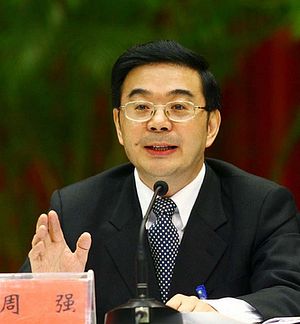China is moving to get rid of targets for arrests and convictions, which were previously used to assess the performances of Chinese officials in law enforcement and the judiciary, Reuters reports, citing Chinese state media. Tackling “unreasonable items for assessment” is part of China’s push to showcase the “rule of law” (or “rule by law”), as unveiled at the Fourth Plenum last fall.
The “rule of law” was under the microscope on Tuesday, when the Political and Legal Committee met in Beijing to take the first concrete steps toward reform. As with China’s more general economic reforms, one of the major levers the government has for changing behavior is to change the way the Party assesses local performance. Setting targets for arrest and conviction rates can encourage local police, lawyers, and judges to seek a rapid conclusion to a case – regardless of whether or not justice is served.
This is true in civil as well as criminal cases. As Susan Finder points out on her blog, The Supreme People’s Court Monitor, judicial performance targets used to include having a low number of unresolved cases – which, in practice, led to judges simply refusing to accept cases as the calendar year drew to a close. The Party Committee of the Supreme People’s Court decided late last year to cancel the performance ranking system, with a special emphasis on combating the practice of rejecting cases filed late in the year. As Finder notes, though, it’s not clear what performance indicators will be used to replace the old system.
Previously, performance indicators placed artificial constraints on the workings of China’s justice system, and led to cases where individual legal rights were sidelined in favor of quotas. One symptom of the rush to close cases has been wrongful convictions, which were in the spotlight this year as a Chinese court overturned the verdict in a nearly 20-year old case where a teenager was executed after a hasty trial. Chinese media embraced the case as a cautionary tale; a commentary in Xinhua insisted that “such delayed justice with irretrievable cost cannot be tolerated and false judgments show the need for further judicial reform.”
Chinese officials agree. Zhou Qiang, the president of the Supreme People’s Court, told his fellow judges that the SPC will focus on ways “to prevent, reinstate and correct wrongful convictions more effectively in 2015.” Zhou also urged judges to use the death penalty sparingly, only in cases of “an extremely few convicts whose crimes are extremely serious.”
Removing judges from artificial assessment targets is part of an overall trend toward great judiciary independence (within limits, of course – the Party will maintain control over important cases). President Xi told the Political and Legal Committee that judges and prosecutors should “exercise their duties independently,” without interference from Party departments. Party committees “at all levels” should “create a favorable environment” for the independent operation of law enforcement agencies and judicial departments, Xi said.
At the same time, however, Xi also emphasized that legal and judiciary officials “should be loyal to the Party.” As I’ve discussed before, what Xi envisions is a court system that is no longer beholden to the whims of individual local officials, but still functions to protect the interests of the Party as a whole.































